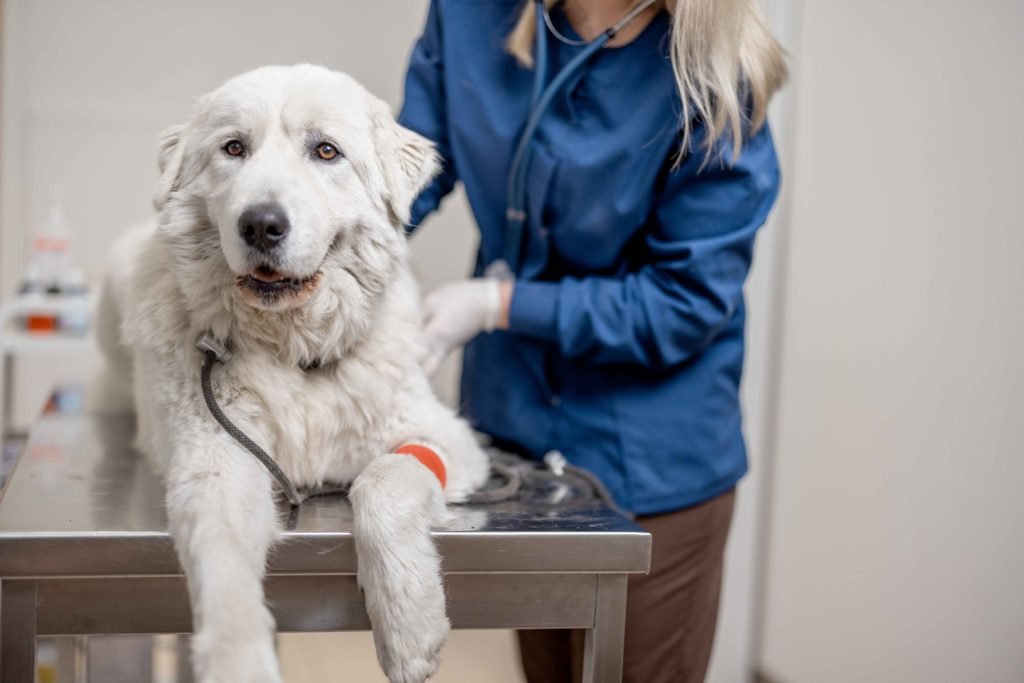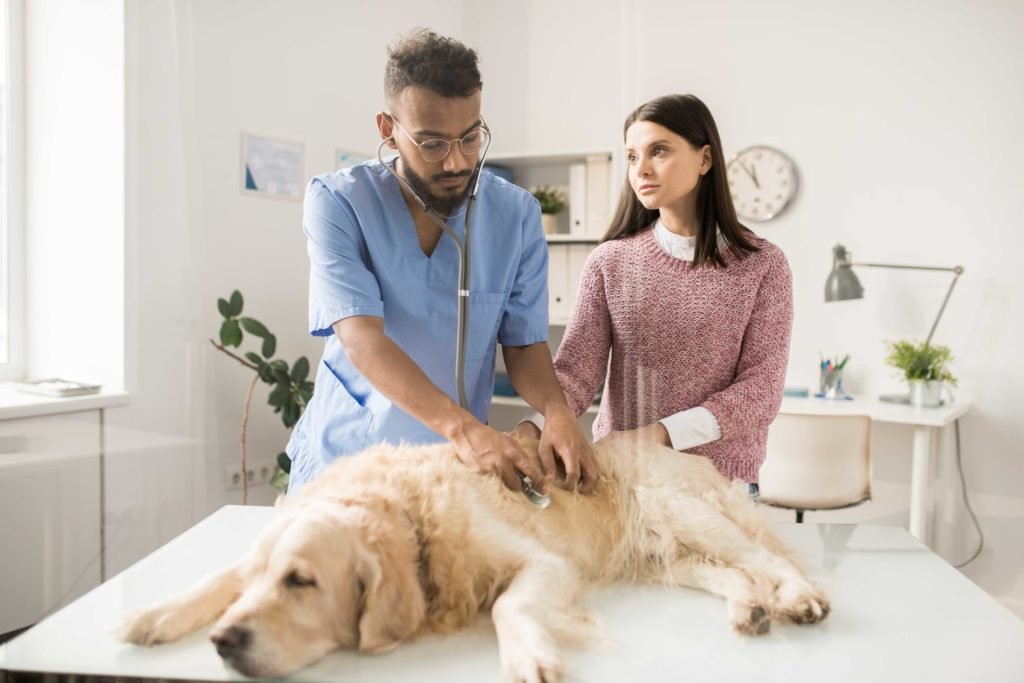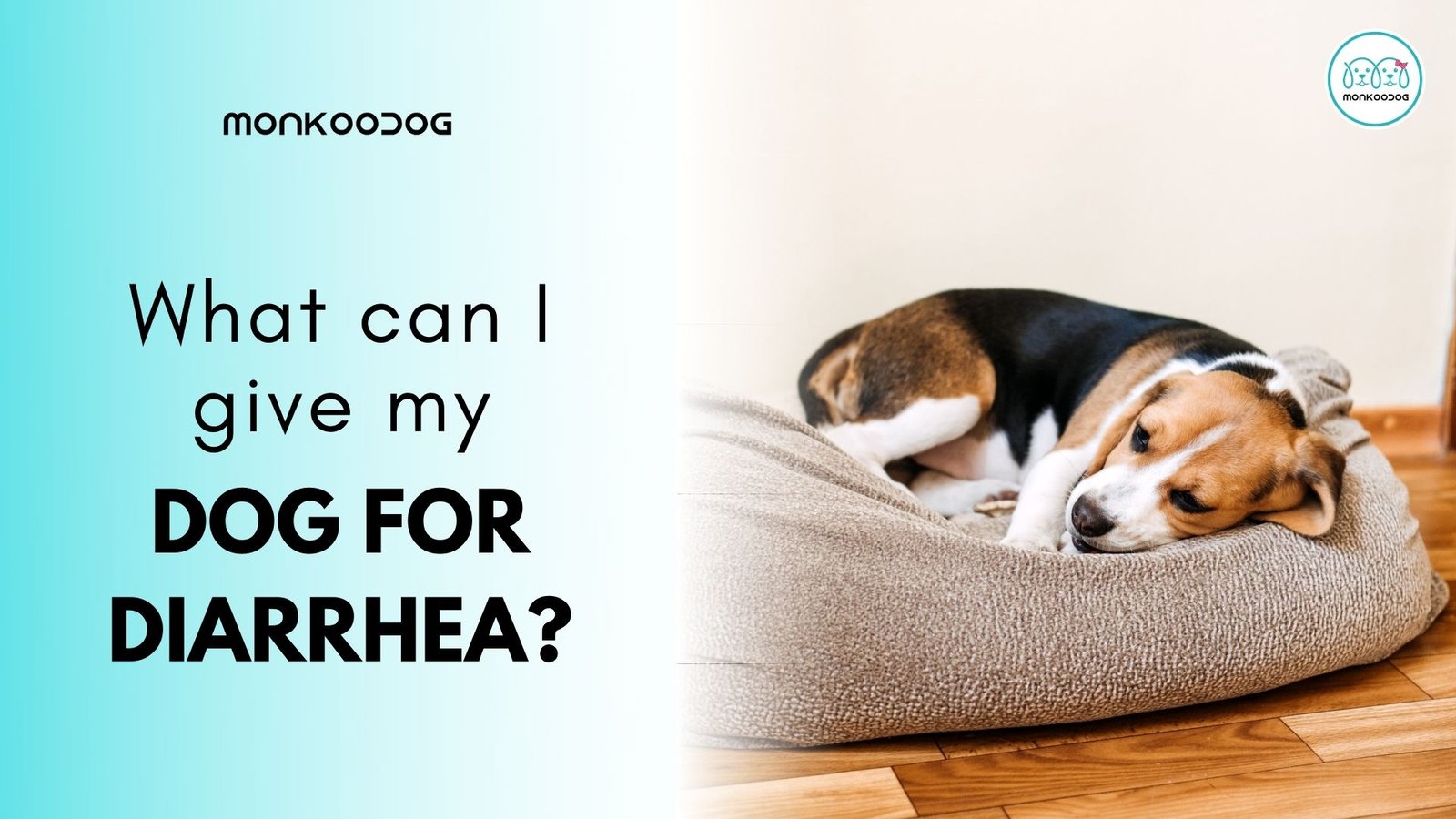Even the healthiest of dogs are bound to sometimes suffer from upset stomachs, which brings you all to one question – “What can I give my dog for Diarrhea?”
Being well versed will help you get your pooch back to its normal healthy self safely and as quickly as possible.
It’s also important to know what to look for so that you can observe signs that indicate worsening conditions that will need veterinary care. By familiarizing yourself with preventive care and a healthy diet, you can minimize the frequency of your pooch suffering and ensure that they receive the right treatment when necessary.
How does the Digestive System in dogs work?
The way that canines digest food is significantly different from us humans.
Human teeth, the salivary glands, and salivary enzymes work so that digestion starts happening in the mouth itself. On the other hand, a dog’s jaw and teeth serve the purpose of tearing, crushing, and gulping down food.
Their salivary enzymes do not break down food. Rather, they kill bacteria, which explains why they can easily tolerate foods we humans can not.
Dogs gulp down food quickly, and it enters their stomach through the esophagus in chunks. Stomach acids of canines are much stronger than those of humans, and hence they can easily digest large pieces of food.
Most digestion happens in the stomach in canines. If things are normal, digestion should result in well-formed stools and happens in under 10 hours.
Also Read:- Fever In Dogs: Causes, Symptoms, And Treatment
What causes Diarrhea in dogs?

Symptoms of an Upset Stomach
Typically, dogs with an upset stomach will show these symptoms:
- Trying to eat grass or licking the floor
- Diarrhea
- Vomiting
- Salivation
- Loss of appetite
- Gurgling noises from the stomach
- Flatulence
Causes of Dog Diarrhea
Many things can cause disturbance in the well-balanced digestive system of your pooch. Some things are not serious at all, while a few others can indicate a serious issue. Some of the common triggers for dog diarrhea are:
- Eating spoiled food, garbage, or eating too much.
- Allergies or intolerance to foods.
- A change in diet. Changes in diet usually take some time for your dog’s digestive system to adapt to the new proteins in a different brand of dog food or treat. This is why we suggest you switch slowly to a different brand.
- Ingesting poisonous substances or plants.
- Parasites such as Whipworms, Roundworms, Hookworms, giardia, and Coccidia.
- Swallowing an indigestible foreign object like a toy.
- Viral infections like Coronavirus, Distemper, or Parvovirus.
- Bacterial infections like Salmonella.
- Liver or Kidney diseases, Inflammatory Bowel disease, and Colitis.
- Cancer.
- Medications like Antibiotics.
- Stress or Emotional upset.
Home Remedies for Dog Diarrhea

A lot of the cases of Diarrhea in dogs are mild, and you will be able to treat them at home without going to the veterinary clinic. Some basic treatment regimens that can help to reduce digestive problems in your dog:
1. Fasting
The first thing you’ll do is withhold food for 12 to not more than 24 hours. This will allow the gastrointestinal tract to recover. Do not worry that you are starving your pooch. In fact, it’s quite common in the wild for dogs to go without food for a day.
Nevertheless, before fasting, you should make sure that your pooch is fit to endure it.
Fasting is not appropriate for small puppies, senior dogs, and small breeds who may not have the physical reserves that larger dogs do.
Diarrhea can cause your pooch to get dehydrated. So, throughout the treatment, you should make sure that the dog is drinking plenty of water. With your vet’s advice, you can even give an unflavoured electrolyte like Pedialyte to help maintain electrolyte balance and combat dehydration.
2. Homemade Dog Food Cures for Dog Diarrhea
After the fast, you can introduce simple foods slowly. It is recommended that you start with foods that act as binders, which can help get the stool consistency back to normal. Some tried-and-tested homemade dog food for Diarrhea include:
- Rice water: Boil good quality rice in a lot of water. You can choose to keep the grains or discard them and offer the dog creamy white rice water.
- Plain white rice: Plain, simple to digest but energy and nutrient-rich foods like rice does wonders in helping the digestive system get back on track.
- Bone Broth: Bone broth is a magic elixir that is healing for both dogs and humans. It’s best to make bone broth ahead and freeze since it takes almost a day to make. Simmer meat on the bone with water in a pot for about a day to make bone broth. You can additionally add apple cider vinegar to help with the healing properties.

- Pumpkin: 100% pure pumpkin is surprisingly effective for Diarrhea and constipation.
- Plain yogurt with probiotics and active cultures can help soothe the dog’s stomach. Probiotics help balance the gut bacteria that aids in digestion.
- Boiled potatoes without skin
- Plain protein sources such as boiled eggs or chicken (without skin)
- Banana and oatmeal
3. Bland Diet
You can try a bland diet made of rice boiled with chicken meat or chicken broth. And, forget about adding any oils, fats, or spices to this meal.
When you find a diet that agrees with your pooch stomach and likes; start by giving small portions and then gradually increasing the quantity over a span of days. Then you can begin to add little amounts of your dog’s regular food till your dog fully recovers and is back to normal.
4. Prevent your dog from eating a lot of grass
You might have noticed that dogs tend to munch on grass when they have an upset stomach. While this might not cause much harm in a natural environment, grass lawns today are treated with chemical fertilizers and pesticides, which are unsafe for your dog. So discourage your pooch when you see them eat grass since it will only make their condition worse.
Warning Signs That Your Dog’s Diarrhea Needs a trip to the vet

- Lethargy
- Frequent vomiting
- Black, tarry stools with noticeable amounts of fresh blood
- Loss of appetite
- Signs of abdominal pain
- Diarrhea lasts longer than normal amount of time
While home remedies are simple ways to help your dog feel better, they should not be a substitute for vet care. If your pooch is not getting better or spot worsening conditions, take it to your vet immediately.
Also Read:- Dog Diabetes: How To Deal With The Condition
Get your Personal Pet Care Assistant Now! Available on

